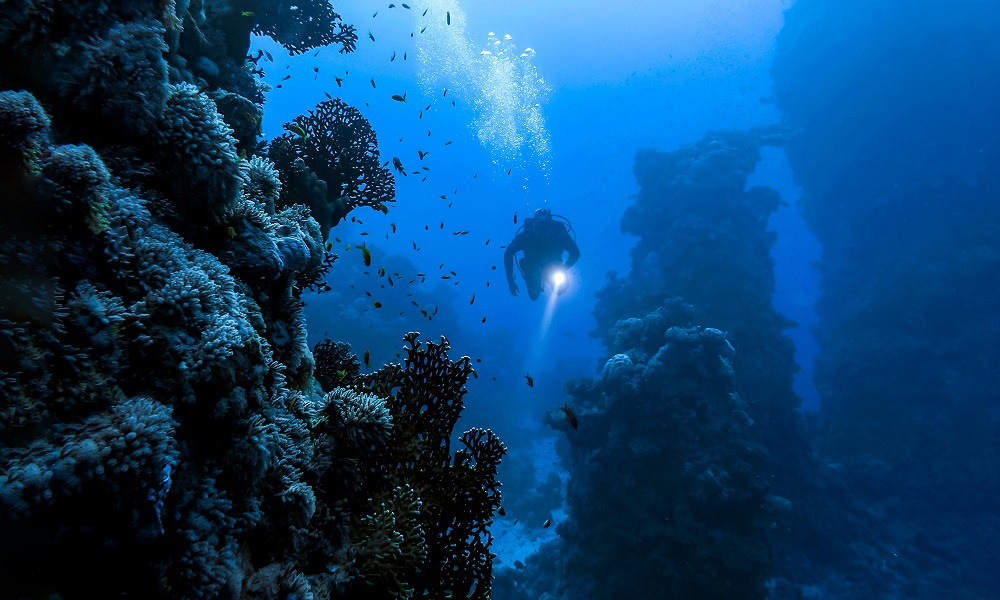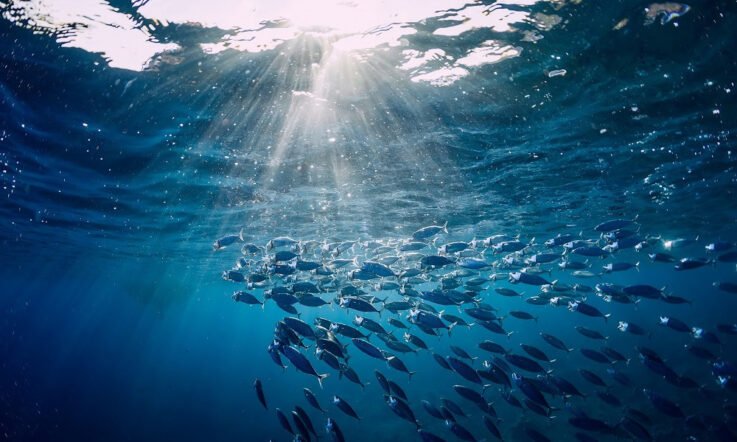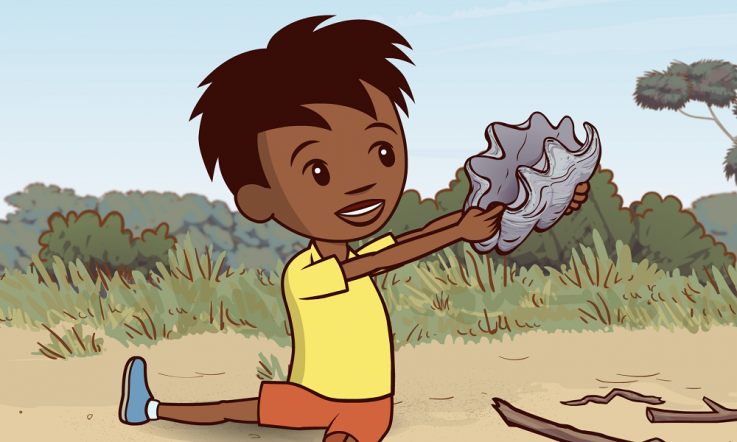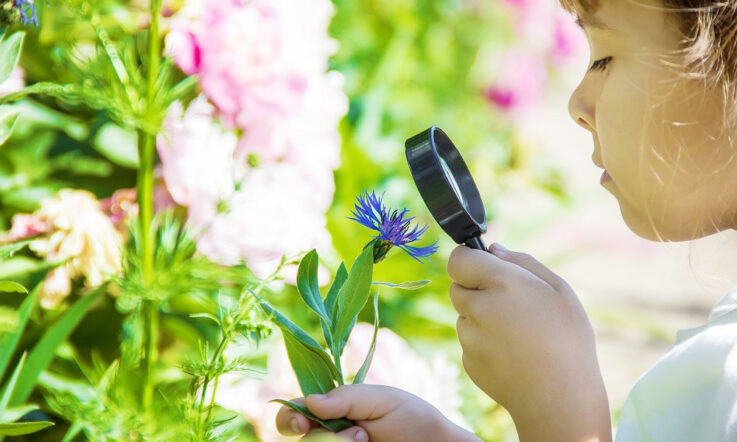It's National Science Week – an annual event that invites schools in Australia to celebrate science and technology with students. School communities often mark the occasion with science fairs, events and excursions, but this year, schools have the option to participate differently, if they need to abide by pandemic restrictions.
The Australian Science Teachers Association (ASTA) coordinates school involvement in National Science Week, and have provided schools with an activity pack called SPECTRA (Science Program Exciting Children Through Research Activities). These packs include activity cards designed for students in Years 1-10 and include tasks for them to complete.
Some activities relate to the this year's theme for National Science Week, which is Deep Blue: Innovation for the future and our oceans.
Finding online and COVID-safe alternatives
At Acacia Hill School in Sadadeen in the Northern Territory, students will be watching science fairs and shows online during Science Week. The central Australian school, which educates students who have intellectual impairments or complex disabilities, also plans to organise a science day for students.
‘We will also be using the SPECTRA cards throughout the week,' Acacia Hill School educator Shinaide Dilles, tells Teacher. ‘I will be organising a science day for our school during the week so that different classes around the school can then come together and share different science experiments and activities with each other.'
Around 70 per cent of students at the school have returned to face-to-face learning since the initial COVID-19 restrictions earlier this year and will be participating in the activities planned. ‘This year all staff will be responsible for coordinating their Science Week activities,' Dilles adds. ‘I have made sure that every class has copies of the SPECTRA cards so that they can engage in science activities all week. I will be allocating a time to the different year levels to present and share some of the cool science activities and experiments they have been working on all week.'
She says that while it's unfortunate families won't be able to join the students in celebrating National Science Week because of COVID-19, she hopes this year's theme is interesting and engaging for students across the school.
Including Aboriginal and Torres Strait Islander perspectives
Fiona Tamminga, Principal at Pia Wadjarri Remote Community School in Murchison, Western Australia, says this year's theme gives her school community an opportunity to research ocean environments.
‘We don't get to see the ocean very often, so this will give us the opportunity to discuss times when we have been near the ocean,' she tells Teacher.
Pia Wadjarri Remote Community School is a small Aboriginal community school where student numbers fluctuate between 12 and 20. Most students are learning face-to-face or on SIDE (School of Isolated and Distance Education). As they are in an already isolated community, students were not as affected by COVID-19 as many others across the country.
‘We like to combine Aboriginal cultural stories into everything we can, so we will include some stories from the coastal regions. We will also write a book about the time we went to the cultural camp and all the things we saw while we were there,' she explains.
‘We will be going on country, down to the Murchison River and talking about what significance it has for the community and look at bush foods and cultural science as well as using many of the activities in the Deeper Blue program.'
An opportunity for new learning experiences
Educator Mariya Bell is helping coordinate National Science Week events at Sheffield School in Sheffield, Tasmania. She teaches Food and Fibre Production at the K-12 school and is working with all staff to organise activities for students.
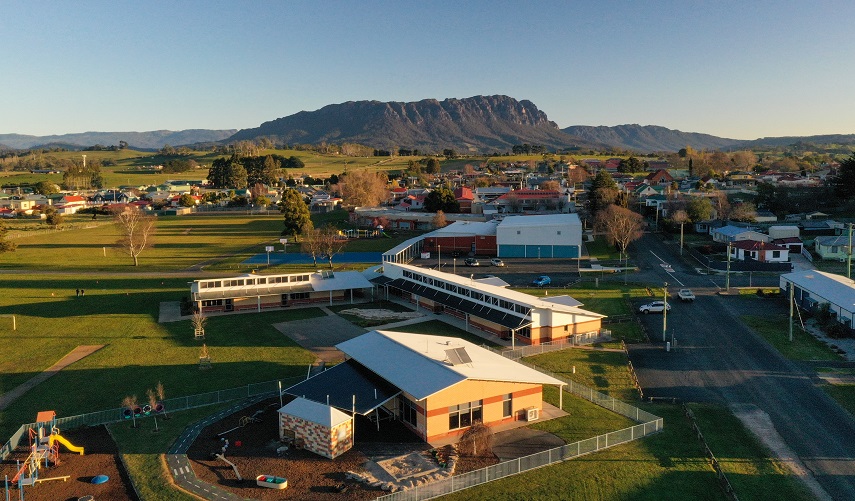
Sheffield School in Tasmania. Image: Taz Drone Solutions
‘We will be using the SPECTRA cards as an option across the school and plan on having an open session for students to explore various activities, subject to no changes with COVID-19 regulations in Tasmania,' she tells Teacher.
Bell says the theme for this year will expose students to a range of concepts and ideas like global environmental issues, pollution and how technology can make a difference.
‘This heightened awareness will inspire and motivate students for future learning and this is the importance of extra-curricular activities in schools and communities,' she adds. ‘While extra-curricular activities can add to the workload of many and place increased pressure on budgets, these activities are important in allowing all students [to have] new learning experiences and another way to feel more connected to education and develop a passion for lifelong learning.
‘Students always enjoy the hands-on and exploratory nature of Science Week activities that is a valued yet added break to their regular focused teaching and learning time.'
If you’ve participated in National Science Week as a school community before, how are you adapting your program for this year? Share what your school has planned with the Teacher community by posting a comment below.
